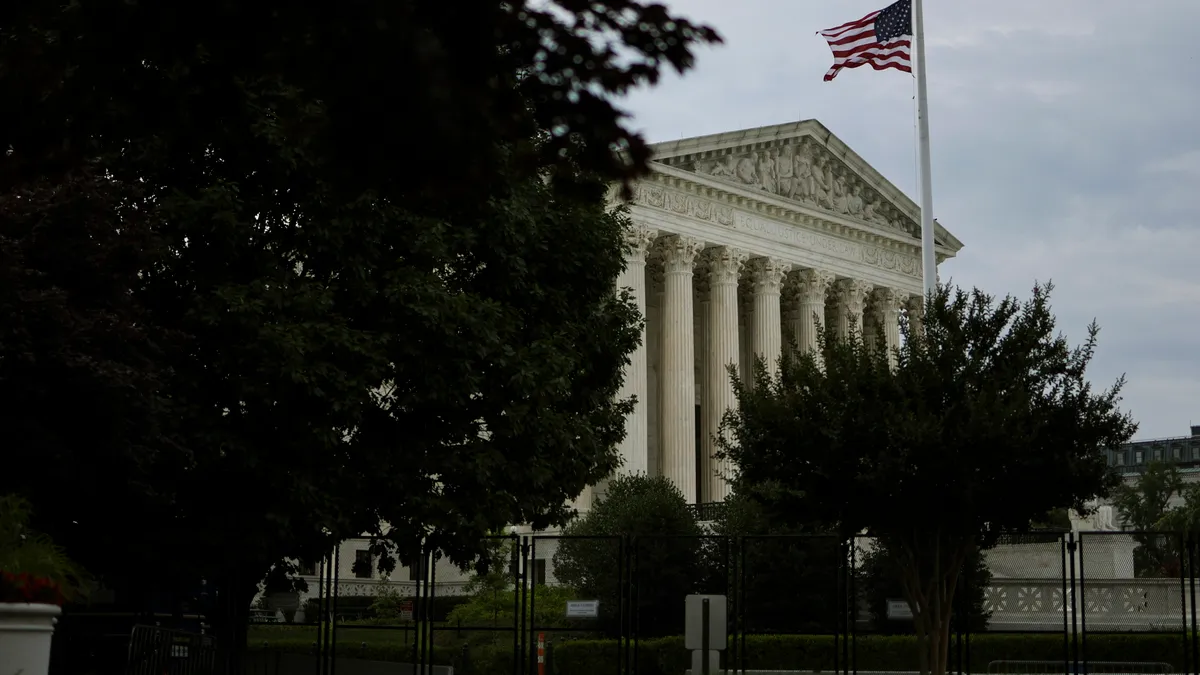Dive Brief:
- The Supreme Court held Thursday that when the SEC seeks civil penalties against a defendant for securities fraud, the Seventh Amendment entitles the defendant to a jury trial.
- The case involved the 2010 Dodd-Frank Act, which authorized the SEC to impose civil penalties through its own in-house administrative proceedings.
- The ruling is likely to have implications for the powers of government agencies beyond the SEC, such as the National Labor Relations Board, the Environmental Protection Agency and others.
Dive Insight:
The Supreme Court’s 6-3 decision in SEC v. Jarkesy broke down along partisan lines and deals a big setback to the SEC. The agency had levied a $300,000 civil penalty against a hedge fund manager, George Jarkesy Jr., for securities fraud and found that his company had to pay back $685,000 in illegal gains.
But the justices ruled that the manager was entitled to a jury trial. Writing for the Court, Chief Justice John Roberts said, “Congress cannot conjure away the Seventh Amendment by mandating that traditional legal claims be... taken to an administrative tribunal.”
Roberts explained that a punitive remedy can only be enforced in the courts. Any other result, he added, would violate the separation of powers regardless of what Congress may have assigned.
Civil penalties have long ranked among the SEC’s biggest enforcement tools. Restricting the agency’s ability to issue fines is certain to have significant ramifications and could invite further challenges by companies.
In dissent, Justice Sonia Sotomayor excoriated the majority in noting that Congress has enacted countless laws in the last 50 years empowering federal agencies to impose civil penalties, and that the Supreme Court had approved this practice repeatedly.
“Make no mistake: Today’s decision is a power grab,” wrote Justice Sotomayor in asserting that the Constitution does not require civil penalty claims to be tried before a federal jury.










